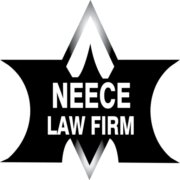Best DUI & DWI Lawyers in North Carolina
Share your needs with us, get contacted by law firms.
Free. Takes 2 min.
Or refine your search by selecting a city:
List of the best lawyers in North Carolina, United States
About DUI & DWI Law in North Carolina, United States
Driving Under the Influence (DUI) and Driving While Impaired (DWI) are both serious criminal offenses in North Carolina. Under state law, DUI and DWI generally refer to the act of operating a motor vehicle while your mental and physical abilities are impaired by alcohol, drugs, or a combination of both. In North Carolina, these terms are largely interchangeable, but DWI is the term most commonly used in statutes and courtrooms. A conviction can lead to significant penalties, including fines, license suspension or revocation, and even jail time. Understanding your rights and responsibilities under North Carolina's DUI and DWI laws is critical if you or someone you know is facing a charge.
Why You May Need a Lawyer
DUI and DWI charges in North Carolina can have long-term consequences for your personal and professional life. Here are several situations where having a lawyer is especially important:
- If you have prior DUI or DWI convictions
- If there was an accident, especially one involving injuries or fatalities
- If you refused a breathalyzer, blood, or urine test
- If you are a commercial driver or under the legal drinking age
- If you are concerned about your ability to keep your driver's license
- If you have questions about the evidence against you or believe your rights were violated during the stop or arrest
- If you are facing additional criminal charges (such as drug offenses or resisting arrest) alongside your DWI
An experienced attorney can help you understand your options, navigate the legal process, and build a strong defense.
Local Laws Overview
North Carolina law treats DWI offenses seriously. Here are some key aspects to be aware of:
- The legal limit for Blood Alcohol Concentration (BAC) is 0.08 percent for most drivers. For commercial drivers, it is 0.04 percent. For drivers under 21, any detectable alcohol is illegal (zero tolerance law).
- DWI charges can be brought if you are impaired by alcohol, illegal drugs, or even prescription medications that affect your ability to drive safely.
- Implied consent laws require drivers to submit to breath, blood, or urine testing if law enforcement has probable cause for a DWI arrest. Refusing a test can lead to an automatic license suspension.
- North Carolina uses a system of five sentencing levels for DWI convictions, from Level 5 (least severe) to Level 1 (most severe), with penalties including fines, jail time, community service, and mandatory substance abuse assessments.
- Aggravating factors, such as prior convictions, high BAC levels, reckless driving, causing an accident, or having a child in the car, can increase the severity of punishment.
- Convictions remain on your criminal record and may impact your insurance premiums, employment, and more.
Frequently Asked Questions
What is the difference between DUI and DWI in North Carolina?
In North Carolina, DUI and DWI are often used interchangeably, but DWI is the official legal term for driving while impaired by alcohol or drugs.
What happens if I refuse a breathalyzer or chemical test?
Refusing a chemical test can result in an immediate one-year license revocation under the implied consent law, regardless of the outcome of your DWI case.
Can I get my DWI charge reduced or dismissed?
It is possible, but depends on the details of your case. An attorney may be able to challenge the evidence, argue procedural errors occurred, or negotiate for reduced charges.
Will I go to jail for a first-time DWI in North Carolina?
Jail is a possibility, but courts may consider alternatives such as probation, community service, or alcohol education programs, especially for first offenders without aggravating factors.
How long does a DWI conviction stay on my record?
A DWI conviction is permanent and cannot be expunged under current North Carolina law.
What are the penalties for a DWI conviction?
Penalties vary but can include fines, license suspension, jail time, community service, and court-ordered treatment. The severity depends on factors like BAC, prior convictions, and circumstances of the arrest.
Can I get a restricted or limited driving privilege after a DWI?
Some individuals may be eligible for limited driving privileges, allowing them to drive to work, school, or medical appointments, but there are eligibility requirements and waiting periods.
What effect will a DWI have on my insurance rates?
A DWI conviction typically leads to much higher car insurance premiums and, in some cases, non-renewal or cancellation of your policy.
What happens if I am under 21 and convicted of DWI?
North Carolina has a zero-tolerance policy for underage drivers. Any amount of alcohol can result in loss of license and other penalties for drivers under 21.
Do I need a lawyer for a DWI charge?
While you are not required to have a lawyer, hiring one is strongly recommended to help navigate complex legal procedures, protect your rights, and work for the best possible outcome.
Additional Resources
If you or someone you know is facing a DWI charge, the following resources may be helpful:
- North Carolina Department of Motor Vehicles (DMV) - for information on license suspensions and limited privileges
- North Carolina Judicial Branch - for court information, forms, and case lookup
- NC Alcohol/Drug Council of North Carolina - for substance abuse assessment and treatment resources
- North Carolina Bar Association - for finding and connecting with local attorneys
- Local non-profit organizations supporting those affected by impaired driving
Next Steps
If you have been charged with a DWI or have concerns regarding an arrest or investigation in North Carolina, it is important to act quickly:
- Document all details about your traffic stop and arrest, including what law enforcement said and did
- Refrain from discussing your case with anyone other than your attorney
- Contact a qualified North Carolina DWI lawyer for a consultation as soon as possible
- Gather paperwork such as your citation, court date, and any DMV correspondence
- Follow any court or DMV deadlines precisely to avoid further complications
Taking prompt action with the right legal guidance can help protect your rights and work toward a better outcome in your DWI case.
Lawzana helps you find the best lawyers and law firms in North Carolina through a curated and pre-screened list of qualified legal professionals. Our platform offers rankings and detailed profiles of attorneys and law firms, allowing you to compare based on practice areas, including DUI & DWI, experience, and client feedback.
Each profile includes a description of the firm's areas of practice, client reviews, team members and partners, year of establishment, spoken languages, office locations, contact information, social media presence, and any published articles or resources. Most firms on our platform speak English and are experienced in both local and international legal matters.
Get a quote from top-rated law firms in North Carolina, United States — quickly, securely, and without unnecessary hassle.
Disclaimer:
The information provided on this page is for general informational purposes only and does not constitute legal advice. While we strive to ensure the accuracy and relevance of the content, legal information may change over time, and interpretations of the law can vary. You should always consult with a qualified legal professional for advice specific to your situation.
We disclaim all liability for actions taken or not taken based on the content of this page. If you believe any information is incorrect or outdated, please contact us, and we will review and update it where appropriate.
Browse dui & dwi law firms by city in North Carolina
Refine your search by selecting a city.















